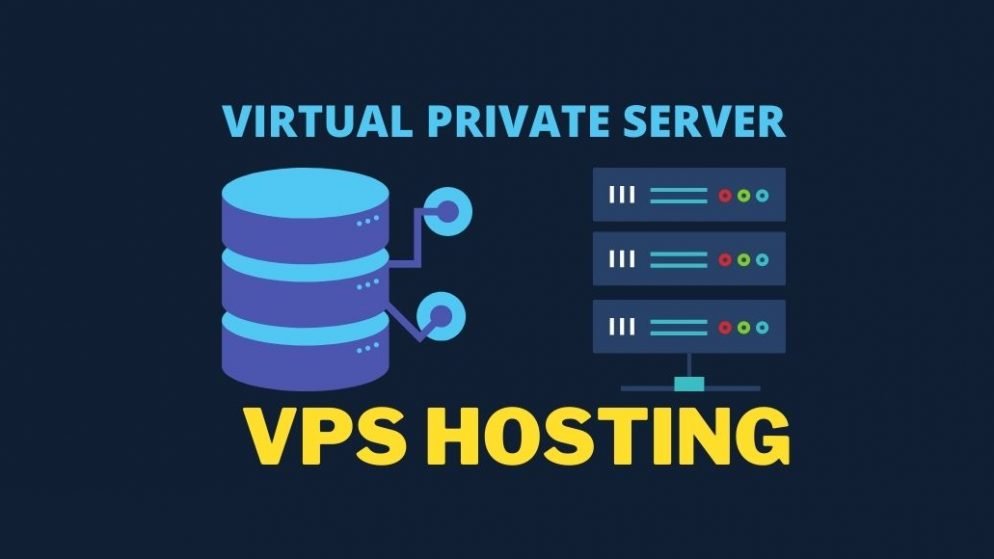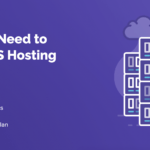
What Is a VPS Server and How Does It Work – A eginner’s Guide to VPS
The most popular and basic form of web hosting is Shared Hosting, where there is one physical server being shared by different customers and businesses. They share the CPU, RAM, and disk space of the same server. Another type of hosting is Dedicated Server, where just one customer uses a physical server. It comes at a high cost and is only used by large corporations.
However, there is one another Hosting called VPS and It has become a way more popular option for many customers as it lowers the cost compare to dedicated hosting but offers amazing security, reliability, and the best performance,.
In this article we will discuss about the a Virtual Private Server (VPS) as an alternative to Shared and Dedicated Server, also its challenges, and its benefits.
What Is a VPS?
A virtual private server (VPS) is a virtuoiuytdsrtyuioal machine sold as a service by an Internet hosting service. The virtual dedicated server (VDS) also works in a virtualized environment but some CPU cores are dedicated for it, which is not the case with VPS.
A virtual private server runs its own copy of an operating system (OS), and customers may have superuser-level access to that operating system instance, so they can install almost any software that runs on that OS. For many purposes it is functionally equivalent to a dedicated physical server and, being software-defined, can be created and configured much more easily. A virtual server costs much less than an equivalent physical server. However, as virtual servers share the underlying physical hardware with other VPSes, performance may be lower, depending on the workload of any other executing virtual machines.
VPS has caught on with mid to low-level consumers who cannot afford dedicated server but still want to enjoy the reliability, security, and performance that comes with it. Every popular essay paper writing service prefers VPS as it offers a wide range of benefits, which its customers, the students, value the most.
VPS hosting is less expensive than Dedicated Hosting, which is part of its charm. A VPS also gives users ‘superuser’ access to the server and allows them to install applications and make changes without going through the hosting providers.
How Does a VPS Work

A VPS uses a physical server separated into several virtual machines. To better understand this, let’s use an example.
Imagine a server is a building with many apartments:
- A Shared Hosting is an apartment complex with many rooms, and anyone who uses the building can access any room at any time.
- A Dedicated Server is like a building that only one person can access.
- A VPS is like a room in a building that only you can access. Other people can access the building, but no other person has access to your room except you.
Although VPS hosting acts like Dedicated Server, they’re two different things. A Dedicated Server has a dedicated physical server, but the VPS is merely a piece of software that emulates a Dedicated Server on a Shared Hosting.
VPSs operate independently of each other so that users can run their own operating systems and applications. This feature gives users the power of dedicated hosting, and it’s more cost-effective for consumers.

There are two types of VPS – OpenVZ vs KVM:
- Single Server VPS: This is a lower-cost option and only needs one single server to host multiple websites and other services.
- Cloud VPS: Many dedicated servers come together to form a hardware cloud. The VPS is stored on several physical servers. So, even if there’s a hardware failure on one of the servers, the VPS will continue working because the data is stored on different servers.
Also Read: What is KVM VPS Server Technology
Why Should You Switch to a VPS Server?
All around the world, many companies and businesses are switching to VPS hosting. VPS holds distinct advantages over Shared Hosting & Dedicated Server, and we are going to talk about a few of them below.
- Reliability: While a Shared Hosting may be cheaper than a VPS, it comes with a significant drawback. A Shared Hosting is like a stack of Dominos. One bad user can crash the server and harm your site.
- Better performance: Hosting on a VPS gives your site better uptime and performance, and you’d be rest assured that no other websites or users on the server can impact your site.
- Eco-friendliness: With more emphasis on the environment and eco-friendly systems, green hosting has grown in popularity. When it comes to servers, VPS is far the most eco-friendly server in the game.
- Conservativeness: If you’re using a Dedicated Server, for instance, it means you’re using all the resources that a particular server has to offer, making you the only beneficiary of the power consumption of the server. On the other hand, a VPS allows you to share the physical server’s resources with more people, ensuring the resources are used optimally.
- Cost-effectiveness: VPS saves you a lot more money when compared to other hosting options. While prices vary from provider to provider, the increased competition has seen prices fall over time, and prices are projected to fall even further as more people switch from Shared Hosting to VPS.
VPS also helps reduce the cost of scaling your website without technical issues and significantly reduces downtime.
Also Read: What is OpenVZ Virtualization? – All You Need to Know about the OpenVZ Virtualization
Challenges of Using VPS Servers
Using a VPS has more advantages than any other type of hosting service. But it still has some distinct disadvantages:
- While VPS is less expensive than Dedicated Server, it’s also more expensive than Shared Hosting. For websites that do not need the features of a Dedicated Server, using a VPS might be cost-prohibitive.
- Choosing the wrong VPS service may also impact your site performance if the VPS provider does not appropriately allocate resources. This causes performance issues when a site on the server uses its allocated resources at peak levels.
- VPS providing services allocate resources hoping that most sites will not use their allocated resources at peak levels. And when this happens, it affects other sites on the server negatively.
Conclusion
Virtual private servers represent the future of server technology by using a shared server environment for web hosting.
The pros of VPS certainly outweigh the cons, especially if your site has outgrown Shared Hosting and you are looking to expand in the future.
Shared Hosting will soon become obsolete in the website hosting industry as more service providers move into the VPS sphere. We hope that this article has helped you familiarize yourself with Virtual Private Servers.



